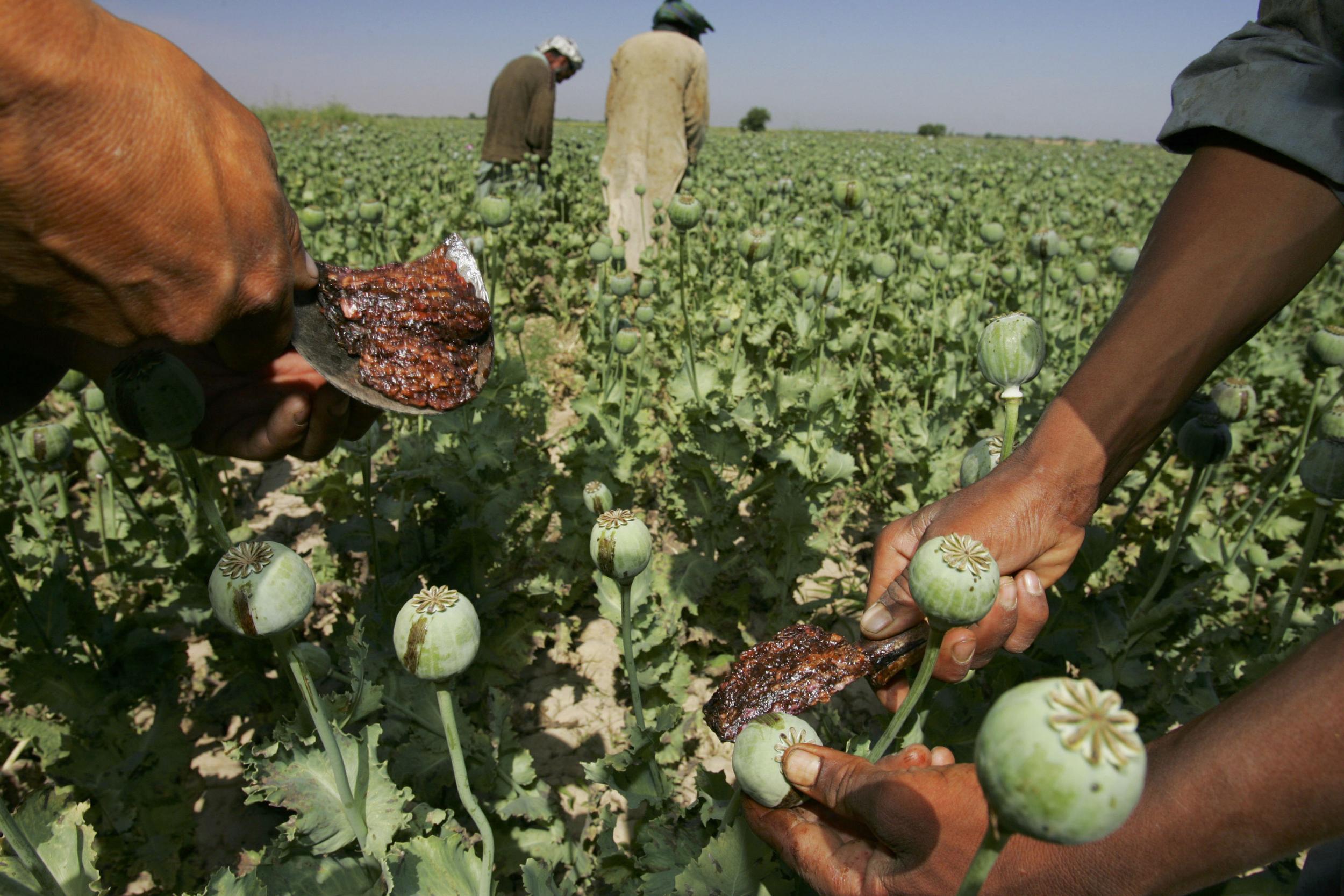If the narcotics trade can boost development and bring peace, it’s time to rethink the ‘war on drugs’
The borders of Afghanistan, Colombia and Myanmar are some of the most contested and unstable parts of the world, yet the drug trade can paradoxically create and maintain some sense of stability and order


Your support helps us to tell the story
From reproductive rights to climate change to Big Tech, The Independent is on the ground when the story is developing. Whether it's investigating the financials of Elon Musk's pro-Trump PAC or producing our latest documentary, 'The A Word', which shines a light on the American women fighting for reproductive rights, we know how important it is to parse out the facts from the messaging.
At such a critical moment in US history, we need reporters on the ground. Your donation allows us to keep sending journalists to speak to both sides of the story.
The Independent is trusted by Americans across the entire political spectrum. And unlike many other quality news outlets, we choose not to lock Americans out of our reporting and analysis with paywalls. We believe quality journalism should be available to everyone, paid for by those who can afford it.
Your support makes all the difference.America’s “war on drugs” was formally declared during a speech by US president Richard Nixon in 1971. Since then successive western administrations have continued to fund the conflict in countries such as Colombia, Afghanistan and Myanmar to the tune of billions of dollars. These are the same governments that have bankrolled the Taliban or Mujahedeen at various times to enable regime change, and citizens in these war-torn countries are left trying to navigate the chaos to survive.
But contrary to popular assumptions the illicit drugs trade can create development opportunities and have a role in building peace.
Afghanistan, Colombia and Myanmar dominate the global production of heroin and cocaine. New analysis reveals how this illicit trade has created benefits for their populations. For example, Colombia’s coca farmers use money from their crops to invest in their children’s education or community projects to build bridges or improve roads. Of course, such infrastructure improvement can be a double-edged sword; the same improved roads that facilitate legitimate movement of goods can also transport the supply of illicit drugs to traumatised communities.
These citizens have been abandoned by their government – if, that is, there is a functioning administration at all. The only source of regular and reliable income to many is growing or manufacturing drugs. It’s all some have known, as conflict has been ongoing for years if not decades. This creates intergenerational knowledge of growing opium and coca, and ensures the optimum price is achieved.
It’s not just development which can get a boost by the drugs trade. Narcotics can play an unexpected role in peace-building. The borders of Afghanistan, Colombia and Myanmar are some of the most contested and unstable parts of the world. Ceasefires come and go, as do initiatives thought up by benevolent, but poorly informed western governments. Although the trade in illicit drugs can bring with it its own type of violence, it can paradoxically create and maintain some sense of stability and order.
Witnesses from these borderlands report how they felt more secure under the control of the Taliban or Farc guerrillas than any internationally brokered “peace” deal, which inevitably sparked new violence when groups fought for control of land that produced these profitable drug crops. Or when alternative industries were established such as oil production, triggering land grabs which displaced indigenous groups.
These populations have grown up with violence and see no hope of it ending anytime soon. Without hope, little wonder they are not only producers of opium and cocaine, but consumers of them too. This form of self-medicating is sadly passed on from one generation to another, in the same way those in power also pass on their failing peace and drug eradication policies throughout the decades.
The problem with policies aimed at tackling the international drugs trade is that they are often focused on single issues, when those on the receiving end face multiple interconnected problems. This creates a mismatch between conception and effect. For example, policies that sanction destruction of coca crops by spraying insecticides succeed in destroying this year’s crop, but also deny a cohort of children an education.
Western politicians seem incapable of understanding and formulating joined-up policy that considers the impact one intervention has on another. Those in political power will therefore have to rethink their “war on drugs” ideology if they want to achieve peace and reduce poverty in these countries. It will be necessary to engage those involved in the illicit drug trade if learning and solutions are to be found.
These are not easy problems to solve but that’s all the more reason to adopt an open mind and invite the input of those that feel the greatest impact, the coca pickers or the opium farmers. Holding onto a failed international policy of a “war on drugs” will never produce peace or reduce inequality and reversing this will require some humble acknowledgement of failure.
Ian Hamilton lectures in mental health at the Department of Health Sciences, University of York
Join our commenting forum
Join thought-provoking conversations, follow other Independent readers and see their replies
Comments